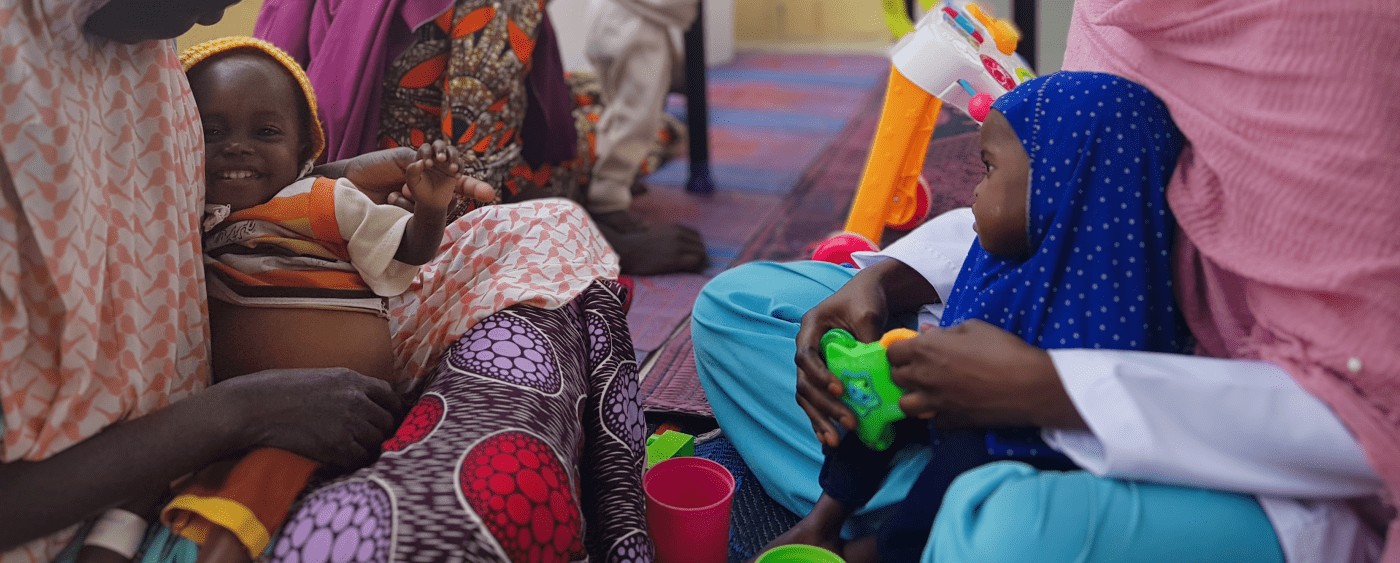
Lucile Saint-Louis
The integration of pediatric physiotherapy into the management of severe malnutrition
- Share on Facebook
- Share on Telegram
- Share on LinkedIn
- Share on Twitter
- Copy link
Page url is copied
Mission Chronicle in Kano, Nigeria
In Nigeria, child malnutrition is a public health emergency. Approximately 2.5 million children suffer from severe malnutrition leading to serious medical complications such as neuromotor delays and orthopedic issues, particularly in the most severe forms like kwashiorkor. In Kano, the country's second-largest city with 6-8 million inhabitants in its metropolitan area, MSF WACA supports Unguwa Uku hospital, which treats thousands of malnourished children every year (46 304 in 2024).
In Nigeria, physiotherapy is a well-established discipline, with qualified professionals present in many hospitals. However, the specific approach to neuromotor rehabilitation for infants is still emerging, especially in the context of malnutrition.
In response to these challenges, the MSF Foundation has launched a pilot pediatric physiotherapy project in Kano, aimed at integrating physiotherapy into the comprehensive care of malnourished children.
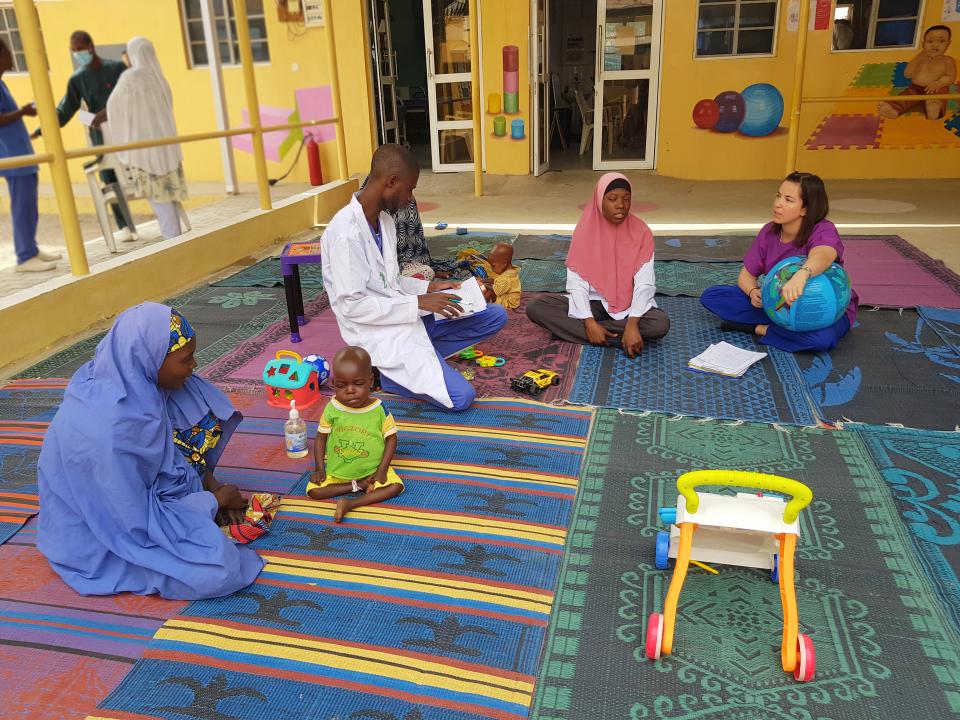
Project Implementation: Diagnosis and Structuring
In September 2024, an initial assessment was conducted on the ground to analyze the needs and feasibility of the project.
"Some of the patients show neuromotor delays (for example, not walking at 18 months), others suffer from severe muscle wasting, some have restricted joint mobility (especially kwashiorkor patients), and others have stopped moving for several months. All of these patients can benefit from physical rehabilitation with physiotherapists to reduce delays and improve their future functional prognosis. Additionally, muscle activity enhances the functioning of the immune system (which is greatly weakened in cases of malnutrition) and helps restore appetite." - Lucile Saint-Louis, Pediatric Rehabilitation Specialist
Lucile, a pediatric rehabilitation specialist for the MSF Foundation, worked with local teams to lay the foundation for the program. The initiative required the establishment of suitable infrastructure, acquisition of specific equipment, and the recruitment of a team of physiotherapists.
One of the main challenges was integrating this new approach into an already structured care pathway, raising awareness among healthcare professionals about the importance of motor rehabilitation in the treatment of malnourished children.
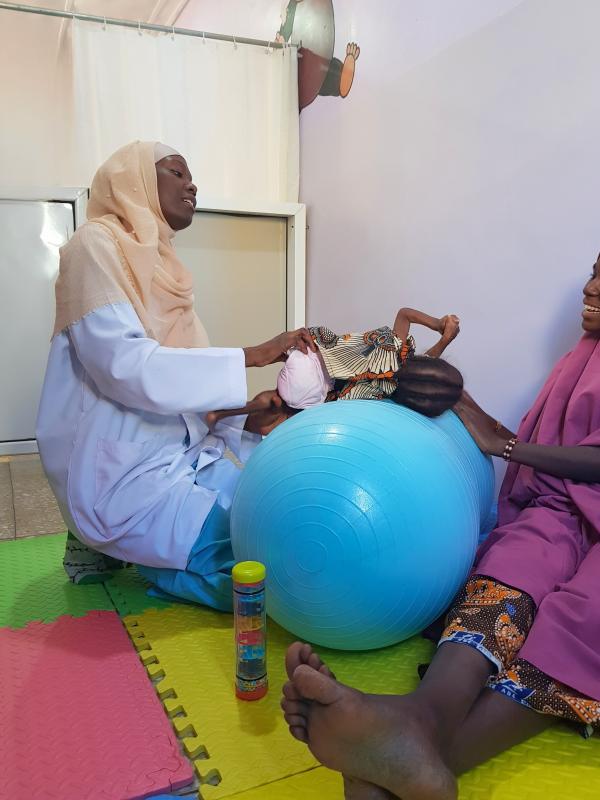
Lucile Saint-Louis
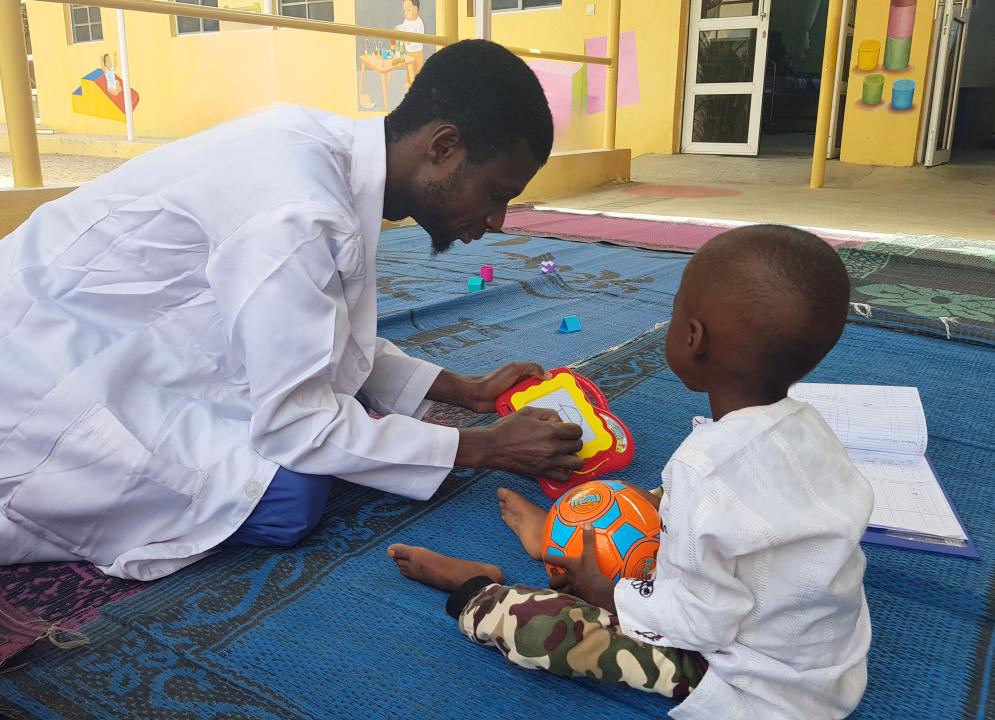
Lucile Saint-Louis

Training and Implementation of Pediatric Rehabilitation
Rehabilitation of Developmental Delays is a medical discipline that is still not widely taught in many countries. To ensure good adherence from healthcare workers, Lucile designed a training program tailored to the specificities of severe malnutrition.
This training included:
- Identifying early signs of motor developmental delays.
- Integrating rehabilitation into the malnutrition care protocol.
- Using play and sensorimotor stimulation as therapeutic tools.
"Play is an essential element of our practice. Malnourished children are particularly fearful and difficult to approach. It’s important to earn their trust so that they initially allow us to get close, and then gradually guide them during the sessions until they feel comfortable and improve their mobility." - Lucile Saint-Louis, Pediatric Rehabilitation Specialist
The recruitment of two physiotherapists, Fatima and Mubarak, both from Kano, was a key step. After an adaptation phase, they quickly found their footing, combining individual care and group sessions under a sheltered area within the hospital. Acceptance by the healthcare teams was gradual, as they observed the children’s progress and the increasing involvement of the families.
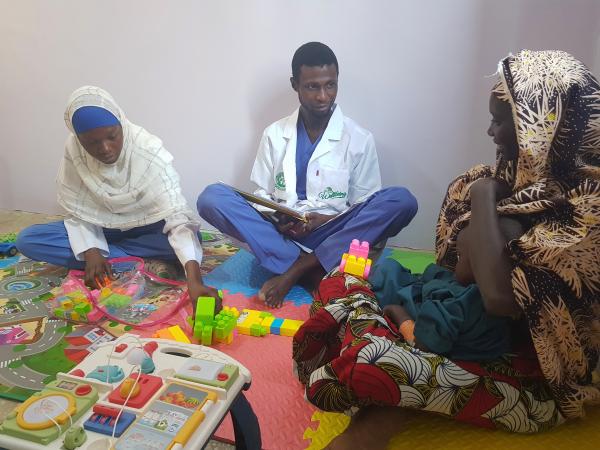
Lucile Saint-Louis
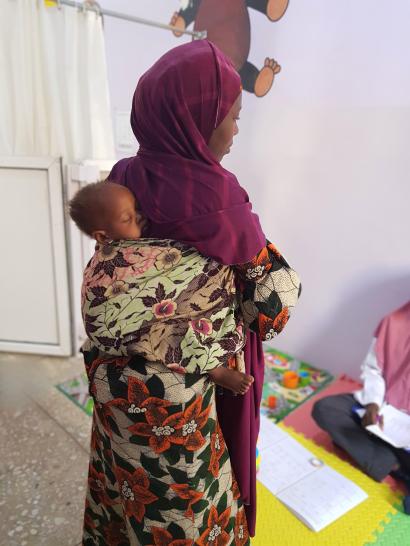
Lucile Saint-Louis
Clinical Impact and Feedback
“We are witnessing the dramatic consequences of severe acute malnutrition. This motivates me, and it also strengthens my determination to carry out awareness and prevention efforts at the community level.” - Mubarak Mutawakkil, Physiotherapist
“When I first arrived here, I was surprised by the number of malnourished children admitted and the severity of their motor delays. But seeing their progress week after week through motor stimulation makes me proud of the work we are doing.” - Fatima Abdulmajid, Physiotherapist
Since the program’s launch in February 2025, over 150 children have benefited from physiotherapy sessions. Early results show significant improvements in motor skills, with notable cases such as a 15-month-old child, initially immobile, who, thanks to rehabilitation, began crawling after just a few sessions.
"It might seem trivial, but seeing a child reach out and grab a toy is often a sign of victory for us." - Lucile Saint-Louis, Pediatric Rehabilitation Specialist
"This is the first time I’ve seen him play and move for 30 minutes straight." - Mother of a patient
The involvement of parents in the therapy has been a key factor in the program’s success. Initially spectators, the mothers have become active participants in their children's rehabilitation, thus ensuring continuity of care beyond the hospital walls.
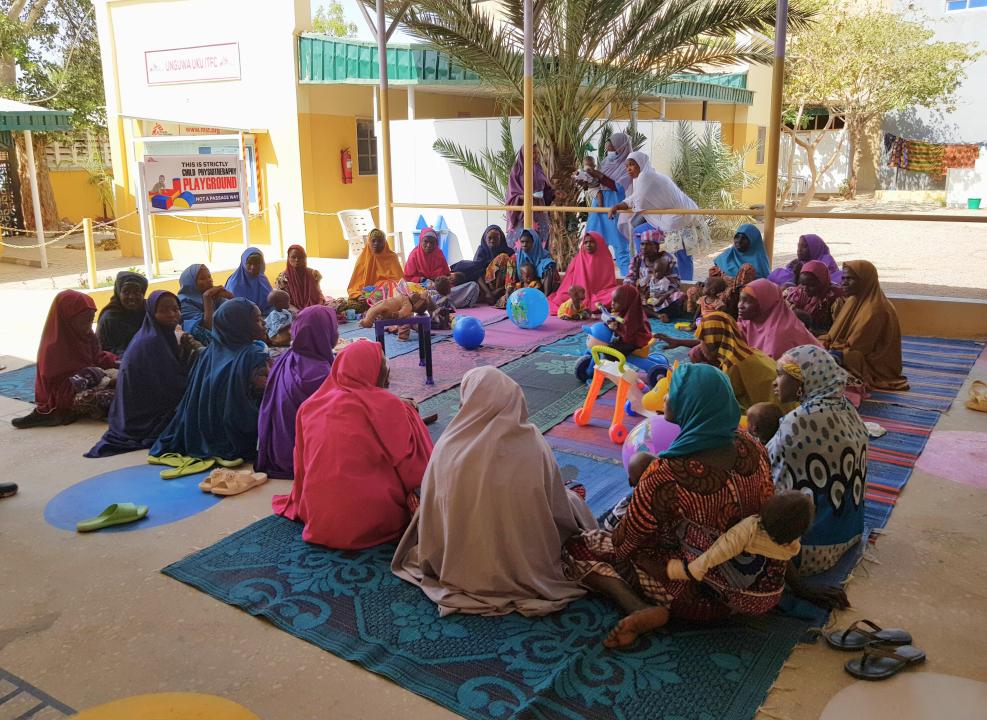
Lucile Saint-Louis
Perspectives and Sustainability of the Project
“Beyond the rehabilitation activity itself, my approach also aimed to center care around the child and their family. A defining moment was when the mother of one of my patients nicknamed Mubarak ‘the doctor who sings.’ This nickname made me realize that a bond of trust was being built between the patients, the families, and this new team of physiotherapists.” - Lucile Saint-Louis, Pediatric Rehabilitation Specialist
After six weeks, pediatric physiotherapy is now integrated into the care at Kano Hospital.
However, several challenges remain:
- Strengthening the training of teams to ensure the transfer of skills.
- Continuing to assess the clinical impact using follow-up indicators (number of patients treated, session frequency, evolution of neuromotor scores).
- Raising further awareness among local communities about nutrition and the importance of early stimulation.
The project initiated in Kano is part of a long-term development strategy. The pediatric rehabilitation initiative in the management of severe malnutrition has already demonstrated its clinical and therapeutic effectiveness. With proper follow-up and commitment from healthcare teams, it could be expanded to other hospitals facing the same challenges.
The MSF Foundation teams will return in a few months for a follow-up mission to assess the progress of this program.
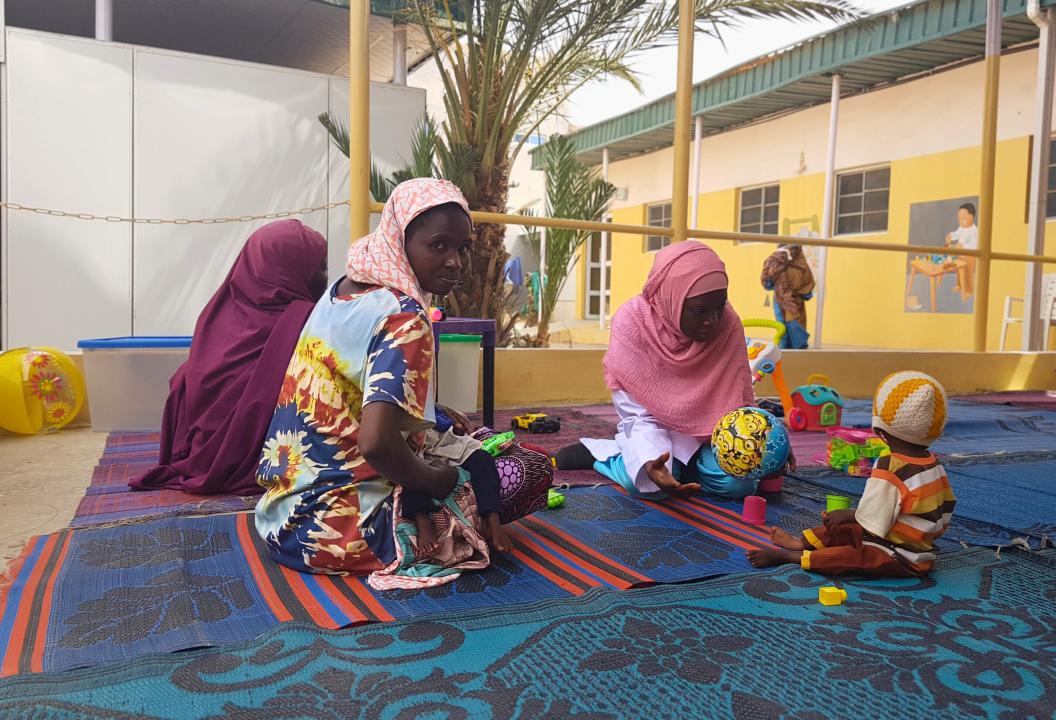
Lucile Saint-Louis
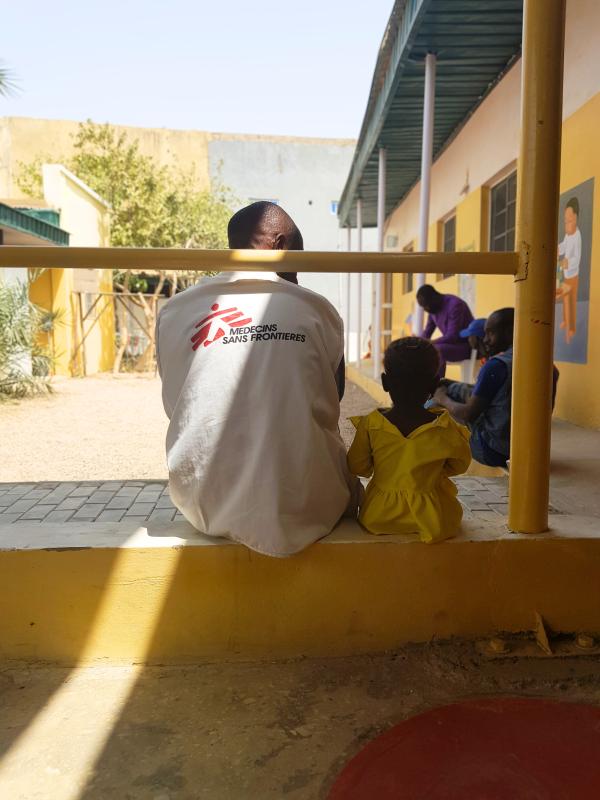
Lucile Saint-Louis
